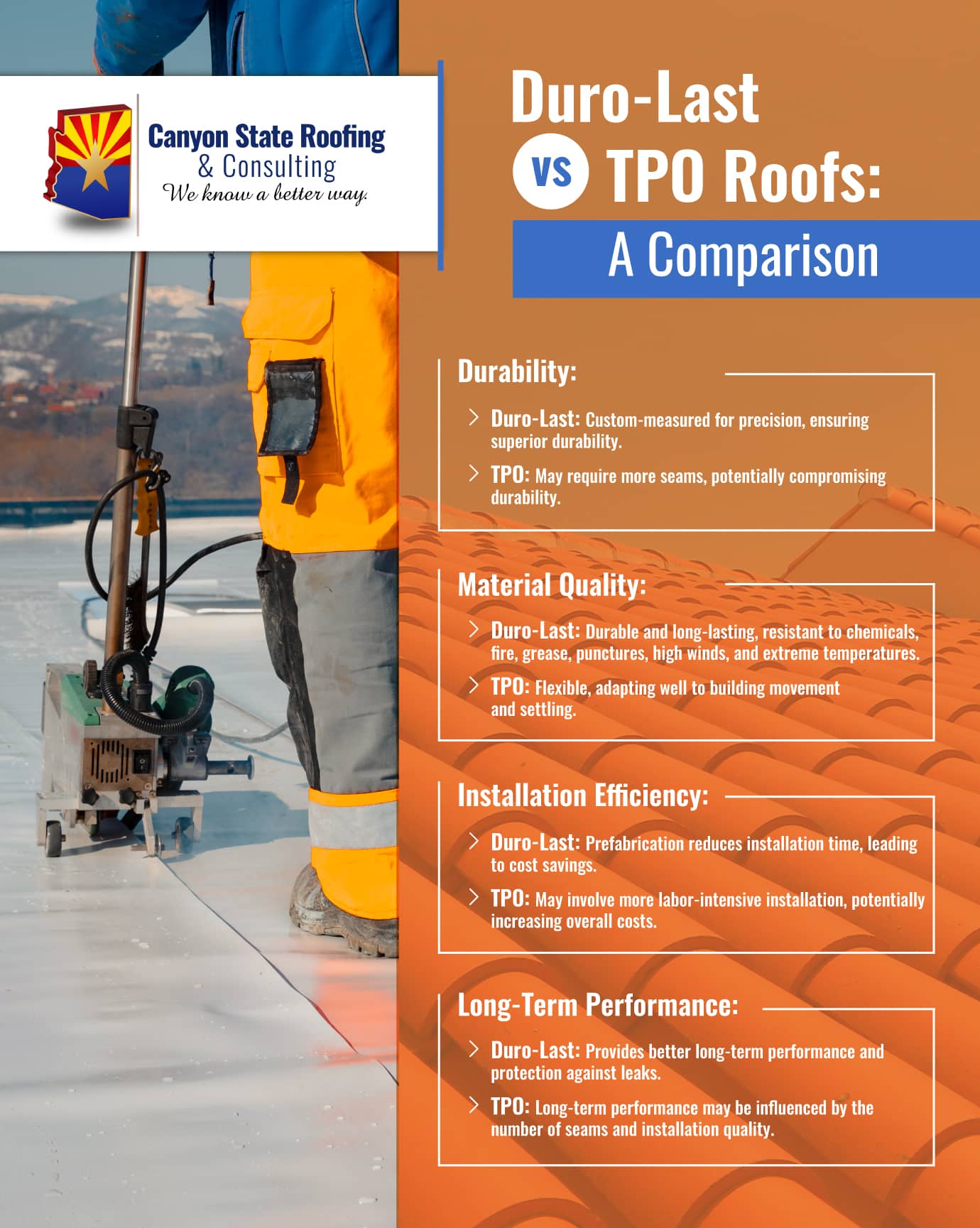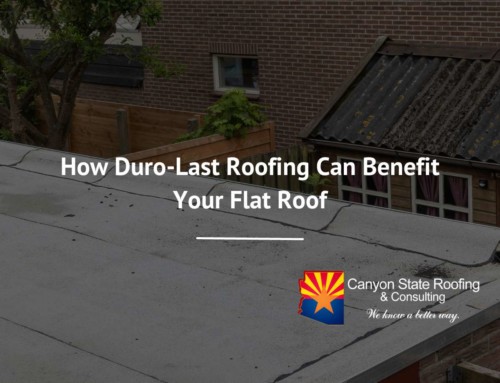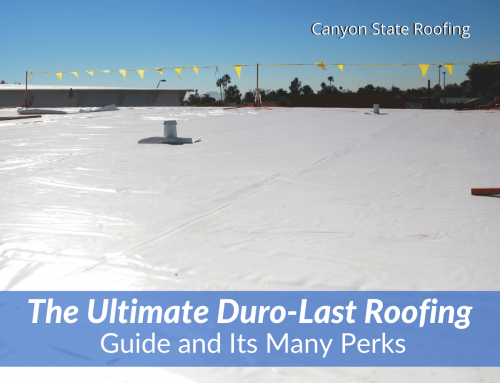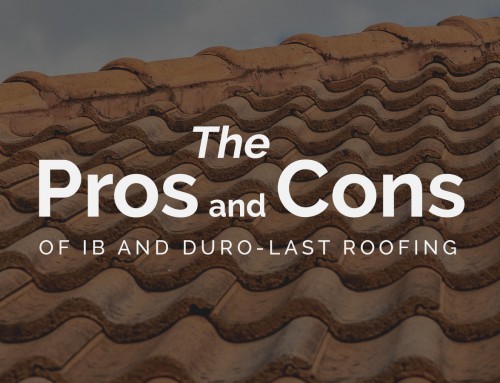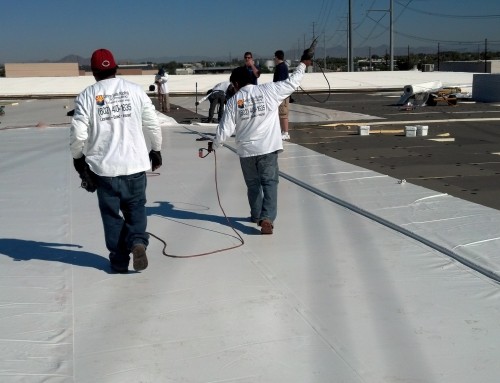Table Of Contents
The Pros & Cons of Duro Last vs. TPO Roofing
Choosing the Right Roof for Arizona’s Harsh Climate: Duro-Last vs. TPO
In Arizona, you have a lot of great options for roofing, but you also have a lot of unique challenges to overcome. When deciding between roofing materials, especially in a place like Phoenix, where the scorching sun and occasional monsoons put roofs to the test, it’s crucial to make an informed decision. Not all roofing types can handle those conditions, which means you’ll be looking at frequently repairing your roof or replacing it sooner than expected.
If you’re in the market for a new roof or need Phoenix roof repair, you’ve probably stumbled upon the dilemma of choosing between two popular options: Duro-Last and TPO roofing.
In this blog post, we’ll explore the fascinating world of Duro-Last and TPO roofing, explaining the advantages and drawbacks of each. So, let’s dive into the details and discover which option suits your needs best!
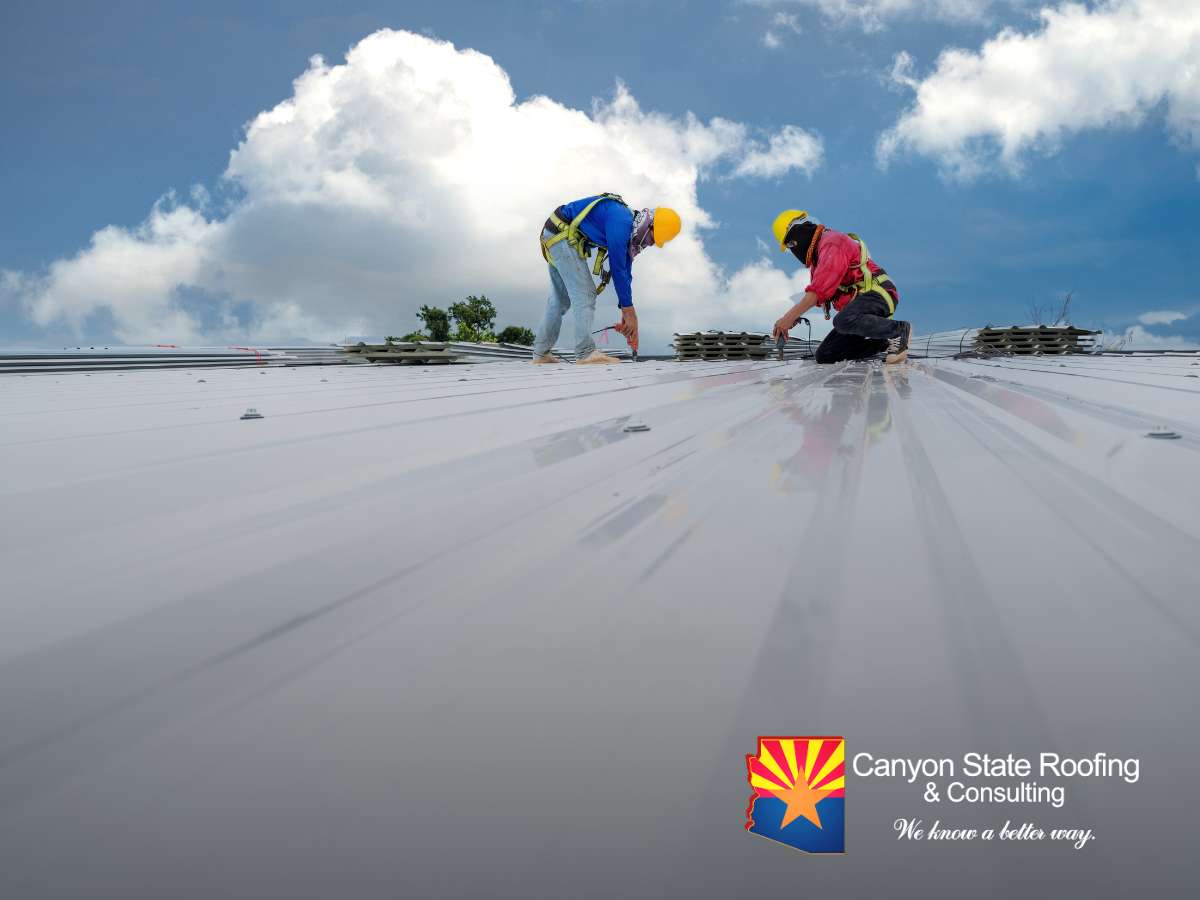
Duro-Last Vs. TPO Roofing Pros & Cons
Let’s check first what exactly are Duro-Last and TPO roofing.
Duro-Last Roofing
Consider Duro-Last as a tailor-made suit for your roof, designed to perfectly fit its shape and size. This roofing system is a single-ply structure primarily made of PVC (polyvinyl chloride). However, it’s crafted from two layers of thermoplastic incorporating a blend of plasticizers, stabilizers, flame retardants, resins, and biocides. Additionally, it includes components that absorb UV rays. The durability and longevity of the roofing result from these two layers of thermoplastic enclosing a knitted scrim.
What’s cool about Duro-Last is that it’s made in a factory to the exact specifications of your roof. This means less work and waste on-site.
This type of roofing is known for being durable and energy-efficient. Plus, it comes in different colors.
Pros & Cons of Duro-Last
Pros:
- Prefabricated: A commercial roofing contractor will come to your home or business and measure your roof. Then they’ll order the materials already cut to the specifications of your roof. This implies a reduced number of seams, minimizing the potential for moisture infiltration into the roof. Prefabrication also reduces the installation time, which will reduce the overall cost of the roofing. Remember, it’s important to find a reliable roofing company.
- Durability: This material is resistant to chemicals, fire, grease, punctures, high winds, and various temperature extremes, making it highly durable and long-lasting.
- Energy Efficiency: It maintains indoor temperature, leading to lower energy costs. Its composition contributes significantly to energy savings.
- Ease of Installation: Can be installed over existing roofs, reducing waste and costs. The installation is also very quick.
- Strong Warranty: Offers extensive warranties, some lasting up to or over 20 years, providing comprehensive protection and peace of mind.
- Seams Protection: The prefabrication process results in fewer seams, offering better protection against moisture and leaks. Just remember that to make the most of it, a Phoenix roofing company should install the roof.
Cons:
- Less Flexibility in Installation: Because it’s prefabricated, there might be limitations in adjusting the roofing material on-site if unexpected changes are needed.
- Specialized Installation: Requires professional installation by a contractor experienced with Duro-Last, which might not be as readily available as for more common roofing types.
TPO Roofing
TPO stands for Thermoplastic Polyolefin. Imagine it as a lightweight blanket for your roof.
It’s also a single-ply roofing system, but it’s different from Duro-Last because it’s usually made from a blend of polypropylene and ethylene-propylene rubber.
While flexible and lightweight, it still requires careful attention when being installed, so it’s always better to hire a residential roofing company.
TPO is popular because it’s easier to install and more budget-friendly compared to some other materials. Moreover, it’s got a good reputation for being energy-efficient and resisting UV rays, which is great for keeping buildings cooler.
Pros & Cons of TPO Roofing
Pros:
- Lightweight: TPO’s single-ply structure makes it lightweight, which is beneficial for ease of handling and installation.
- Energy Efficiency: The reflective, white surface of TPO helps in reflecting heat away from the building, contributing to energy savings, especially in warm climates.
- Welded Seams: The seams of TPO roofing are heat welded, which can create a strong, water-resistant bond.
- Flexibility: TPO is a flexible material, which can be advantageous in adapting to the building’s movement and settling.
Cons:
- Durability Issues: TPO isn’t as durable as other Phoenix roofing options like Duro-Last. It can be prone to cracks and shrinkage over time.
- Laminated Top Layer: The top layer of many TPO roofs is laminated, which can lead to vulnerabilities, potentially causing the material to deteriorate faster.
- Variable Quality: The quality of TPO roofing can vary significantly between manufacturers, affecting its longevity and performance.
- Heat Welding of Seams: While the welded seams can be a pro, they also require precise installation. Poorly welded seams can lead to leaks and reduced roof life.
- Limited Energy Efficiency Features: Beyond its reflective properties, TPO doesn’t offer additional energy-efficient qualities like some other materials.
Comparison & Recommendations
It’s important to weigh the factors we mentioned before according to your specific needs, the climate, and the budget available for the project. The choice between TPO and Duro-Last often depends on the balance between upfront costs, durability, and long-term maintenance needs.
If durability and longevity are your primary concerns, Duro-Last might be a better option. Consult a professional Phoenix roofing contractor to assess your specific situation and get a tailored recommendation for your property. Remember, the right roofing choice can significantly impact the longevity, efficiency, and overall maintenance costs of your building.
Hiring The Experts
We recommend talking to the expert roofers in Arizona to make the best decision for your property. At Canyon State Roofing, we’re always ready to help.
With our extensive experience and expertise in both Duro-Last and TPO roofing systems, we can provide you with tailored advice and high-quality installation services. Contact us now for more info!

Canyon State Roofing
4809 E Thistle Landing Dr #100
Phoenix, AZ 85044
Office: 602-400-1635
Email: [email protected]
Website: www.canyonstateroofs.com


